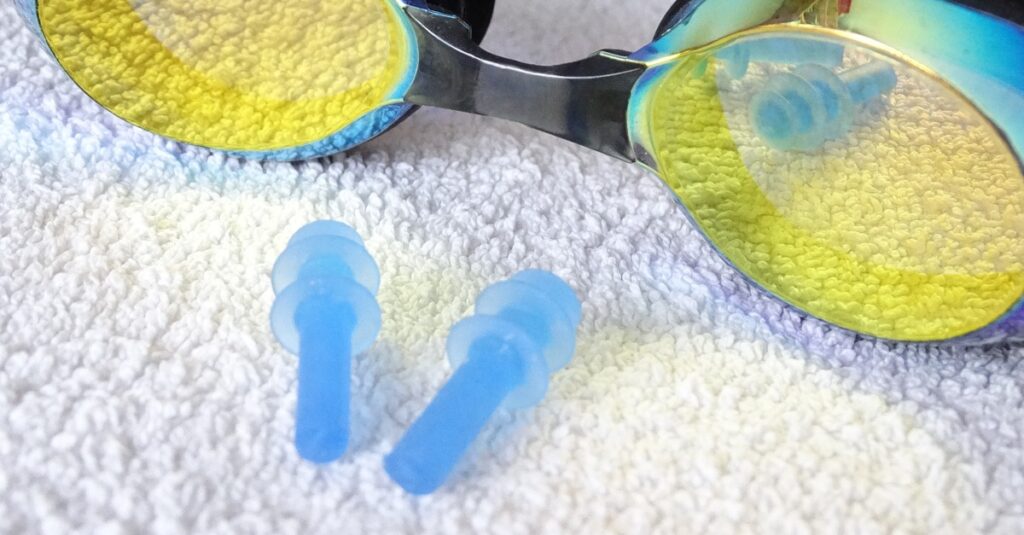

Freediving can damage your ears if you don’t have the right training or don’t follow the safety rules properly. To best protect your ears, master equalization techniques, be cautious when increasing the depth of your dives, and only dive when healthy.
Freediving could damage your ears if you don’t master and apply relevant freediving techniques (equalization of air pressure in your ears) or don’t follow key safety guidelines. Never freedive if you have a cold or similar infection which affects your ear-nose-throat system. Similarly, never wear ordinary earplugs while freediving. In either of these situations you might be unable to equalize your ears.
The True Story Book of Freediving Champion Audrey Mestre and the Story of Her Death
View on Amazon: The Last Attempt (Opens new tab)


Top rated read
During a freedive the human body experiences much higher pressures underwater than it normally experiences on land at sea level. The body’s airspaces (ears, lungs, sinuses) are particularly vulnerable to the stresses of high pressure and must be protected while freediving. Failure to learn good freediving technique or observe safety rules could lead to discomfort, pain or even serious injury.
Does freediving cause ear damage?
If freedivers are trained and competent, and do not have any respiratory system infections, they do not generally experience ear pain or ear problems during an ordinary freedive.
A less experienced freediver without full understanding of pressure impacts on the body’s airspaces, or someone with a cold, might be at higher risk of ear damage if they are unable to equalize the air pressure in their ears while descending.
If you do experience ear issues after freediving, this could be due to a number of medical conditions which can potentially affect the ears of freedivers, including:
Swimmer’s ear (otitis externa): an infection from bacteria growing in water left inside the ear.
Middle-ear barotrauma (barotitis media): an injury triggered by high water pressure during descent, causing blood and other body fluid to leak into the middle ear.
Inner-ear barotrauma: if a freediver equalizes pressure in their ears too forcefully, this can over-pressurize the middle ear, and cause damage to the inner ear.
Ruptured eardrum: high water pressure could perforate or completely the eardrum – in some susceptible individuals this could happen even at shallow depths (e.g. 2m).
How do I stop my ears from hurting when freediving?
To prevent ear pain when freediving, you will need to identify the cause of the pain and address it. For example:
- learn and practice techniques to equalize the pressure in your ears during freediving descent,
- wear a diving hood if cold water in your ears causes you discomfort or pain,
- postpone your freediving session if you have a cold, ear infection or other linked medical issue,
- take medical advice before attempting to freedive if you have any history of ear problems or damage (e.g. perforated eardrum).
- Wear freediving specific earplugs (or none at all)
To learn more about the dangers of wearing earplugs when freediving, check out our do freedivers wear earplugs (opens new tab) article.
Consult a doctor if you have significant ear pain, hearing loss or other unexplained symptoms after freediving.
What is ear squeeze?
As pressure on the body underwater rises, gas volume in airspaces (ears, sinuses, lungs) decreases in inverse proportion, following Boyle’s Law. At 10 meters under the surface, freediver lung volume will be 50% less than usual size, falling further with increasing depth. Airspace volumes can reach less than a quarter of normal size during the very deepest freedives.
Ascending from a dive, the body’s airspaces gradually expand once more.
If we’re unable to equalize the pressure in our airspaces with the pressure of the surrounding water, this can cause barotraumas (pressure injuries). A “squeeze” is the common name for tissue damage caused by barotrauma. Ear squeeze can be a serious injury requiring immediate medical attention.
What to do if you can’t equalize your ears?
If you are unable to equalize your ears during a dive, you should stop your descent, try ascending slightly and repeat your equalization maneuver. If you still cannot equalize the pressure in your ears at lower depth, you should abort your diving plans at that time.
If this happens during your earliest dives, you may want to review your understanding of equalization techniques (e.g. the Frenzel maneuver) and seek practical advice from an instructor or experienced freediving buddy on performing these techniques in the water.
Tips for clearing and protecting the ears during a freedive include:
- equalizing ear pressure even before you dive, perhaps by chewing gum,
- descend feet downward instead of head downward, looking upward to extend your neck and help open the eustachian tubes,
- equalize even when you are not feeing any pressure or pain,
- descend slowly at a controlled rate
- pause or stop stop your dive immediately if you experience ear pain.
If you have a blocked nose or sinuses, this could be preventing you from equalizing as normal. In this case you should wait until all relevant symptoms have cleared up. You should never dive if you have a cold, sinus problem or other respiratory infection.
If you’re an experienced freediver in good health, and do not know why you are having difficulty equalizing your ears, you may want to investigate the situation with an ENT doctor or freediving medicine specialist.
You should never continue with a dive if you find yourself unable to equalize the pressure in your ears. If you continue to descend, the pressure on your ears will increase further, leading to pain, damage, potential rupture and loss of hearing.
